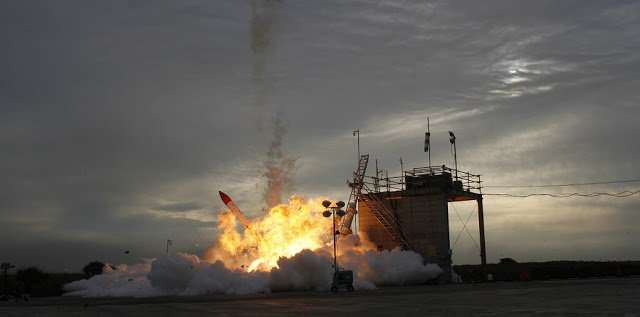Interstellar Technologies continues work on its own rocket despite MOMO-2 launch failure

Japanese startup Interstellar Technologies Inc. (IST) continues the development of its launch vehicle amid the recent failure of the MOMO-2 rocket that exploded shortly after liftoff.
The company is investigating the exact cause of the June 30 failure, when the 33-feet tall MOMO-2 lifted off from a test site in the town of Taiki on Japan's island of Hokkaido, but seconds after the launch, it lost thrust and crashed to the ground. Initial reports say that most likely some problems with the engine and hot-gas thruster triggered the mishap.
"The cause of the MOMO-2 failure is still under investigation. However, we assume that its engine and hot-gas thruster for the roll control are responsible," Takahiro Inagawa, IST's CEO, told Astrowatch.net.
Although MOMO-2's flight lasted just couple of seconds, the data collected during this short period of time could be essential for further development of the company's launch vehicle.
"We have collected enough telemetry from the vehicle. Especially, the sensor data related to the engine will be helpful for further improvement. In addition, the high speed camera video shot at the launch site is important," Inagawa noted.
MOMO-2 rocket launch was IST's second test mission that ended in failure. The first rocket developed by the startup, MOMO-1, was launched in July of 2017 but communications with it were lost about a minute after it had blasted off. The launch vehicle reached an altitude of about 12 miles (20 kilometers) and splashed down into the Pacific Ocean.
IST is also working toward its next mission in its launch manifest – MOMO-3. However, although the exact date of the launch has not been disclosed yet, Inagawa revealed that MOMO-3's flight should be expected within months from now.
"We will begin the next launch as soon as we are ready. We were able to launch MOMO-2 within less than a year after MOMO-1. The launch interval of MOMO-3 and MOMO-2 will be shorter," Inagawa said.
IST is the first and only active Japanese company to launch a privately developed space rocket. The startup's ultimate goal is to change the economics of space launch services, making it more economic to existing customers and accessible to entirely new markets. The company plans to become the first Japanese company to send a rocket to space.
Provided by Astrowatch.net



















